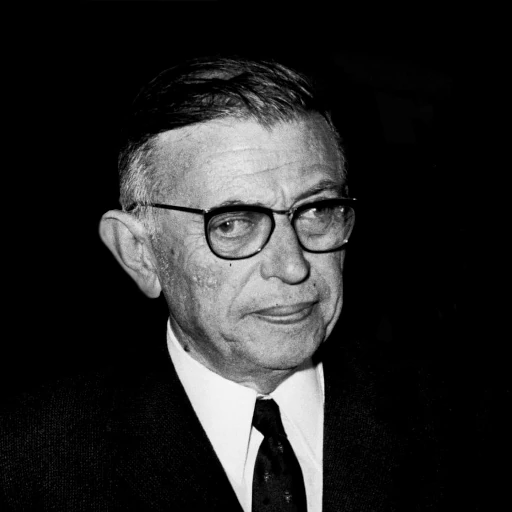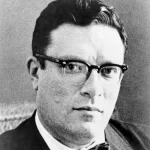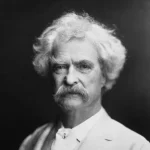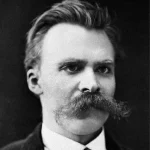“Hell is other people.”

- June 21, 1905 – April 15, 1980
- Born in France
- Philosopher, novelist, playwright
- He advocated existentialism and had a major influence on 20th century thought through works such as “Being and Nothingness” and “Nausea”
Quote
“Hell is other people.”
Explanation
This famous quote from Sartre reflects his existentialist view on the tension between individual freedom and the influence of others. Sartre suggests that the presence of other people can be a source of conflict, because they impose their judgments, expectations, and perspectives upon us. The phrase “hell” in this context doesn’t refer to a literal place of suffering, but rather to the psychological torment that comes from being constantly objectified and defined by others. When we interact with others, we are often seen through their eyes, which means we are reduced to an identity that may not reflect our true selves. This external gaze, which Sartre refers to as the look, alienates us from our own authenticity and creates a constant tension between how we see ourselves and how others see us.
Sartre’s existentialism is deeply concerned with the idea of freedom and self-definition, and the quote underscores how the presence of others can limit this freedom. When others treat us as objects—whether through judgment, comparison, or societal roles—we lose the ability to fully define ourselves. Instead, we are forced to live up to the roles and expectations imposed by others, leading to a loss of individuality. This can be experienced as a form of existential suffering, as we become trapped in the gaze of others, unable to express our true desires and intentions.
In modern contexts, this quote is particularly relevant in social media and the constant scrutiny of one’s life by others. People today often feel the pressure of being watched and judged by an online audience, which can lead to feelings of self-alienation or anxiety. Sartre’s idea of “hell” can be seen in the way people sometimes feel compelled to perform or present a curated version of themselves, rather than living authentically. In navigating the modern world, the challenge is to balance the freedom to act in accordance with one’s values while also interacting with others in a way that does not diminish one’s sense of self.




